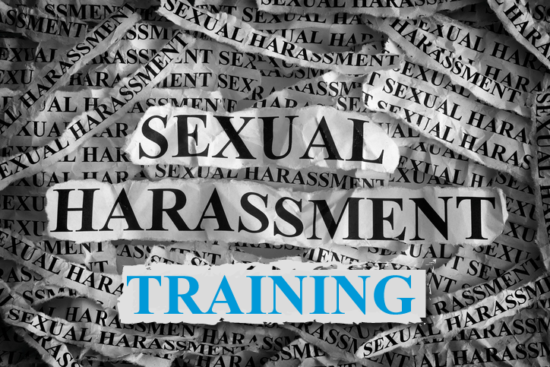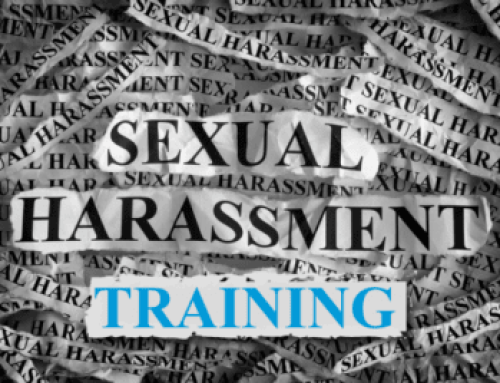Every California employer with 5 or more employees must comply with California’s mandatory sexual harassment training requirements (as set forth in Senate Bill No. 1343). In August 2019, Governor Newsom signed Senate Bill No. 778, which clarified several ambiguities pertaining to these requirements and extended the deadline to January 1, 2021. Employers must ensure their supervisory employees have received at least 2 hours of sexual harassment training (and at least 1 hour of training for all non-supervisory employees) by January 1, 2021, and thereafter once every 2 years. As for seasonal, temporary, or other employees that are hired to work for fewer than six months, employers must provide training to them within 30 calendar days after the hire date or within 100 hours worked (whichever occurs first).
Supervisory v. Non-Supervisory Employees: The law requires that new supervisory employees be provided at least 2 hours of sexual harassment training/education within 6 months of the assumption of their supervisory position, and that new non-supervisory employees be provided at least 1 hour of such training/education within 6 months of hire. SB 778 also clarifies that an employer who provided such training in 2019 is not required to provide it again until 2 years later (2021). Of course, the law provides a minimum threshold for training and employers can choose to provide longer, more frequent, or more elaborate training sessions and materials.
Training Requirements: Employers should be aware of the specific requirements regarding the minimum level of sexual harassment training they are required to provide, including the following:
- The training may be completed individually or as part of a group presentation, and it may be completed in stages (such a series of short segments) so long as the applicable hourly total requirement is met.
- The training materials must include information and practical guidance regarding the federal and state statutory provisions regarding the prohibition against (and the prevention and correction of) sexual harassment, as well as remedies available to victims.
- The training materials must include practical examples about preventing harassment, discrimination, and retaliation in the workplace, presented by a trainer/educator experiences in such matters.
- The subject matter of the training cannot be limited to sexual harassment, and must include harassment based on gender identity, gender expression, and sexual orientation.
- The California Department of Fair Employment and Housing will provide a method for employees who have completed the training to electronically save (and print) a certificate of completion.
Seasonal/Temporary Workers Treated Differently: It is important to remember that while SB 778 extended the initial training compliance deadline under most circumstances, it did not extend the training requirements for seasonal, temporary, or other employees hired to work for fewer than six months (including migrant and seasonal agricultural workers). For those employees, the employer must provide training within 30 calendar days after the date of hire or within 100 hours worked, whichever occurs first. Regarding any temporary employee employed by a “temporary services employer” (as defined in Section 201.3 of the CA Labor Code) to perform services for client-businesses, the training must be provided by the temporary services employer, not the client-business.
If any seasonal or temporary employee has already had the required training within the past 2 years, the employer should obtain a copy of such employee’s current certificate of prior training and then keep track of their upcoming training deadline (if applicable during the employee’s short employment period). If any temporary worker claims to have already undergone sexual harassment training during their prior employment, employers are encouraged to seek the guidance of competent legal counsel to review the compliance certificate and provide appropriate advice.
Don’t Delay; 2021 Deadline Approaches: While SB 778 largely benefits employers, this new law only provides a temporary reprieve. The extension of the training deadline to January 1, 2021 comes as a relief to many employers who have yet to train all of their employees, but they should not postpone this mandatory training any longer. 2021 quickly approaches and there will likely be no further extensions to comply. Employers should have a clear plan in place to ensure compliance with these mandatory sexual harassment training requirements.







